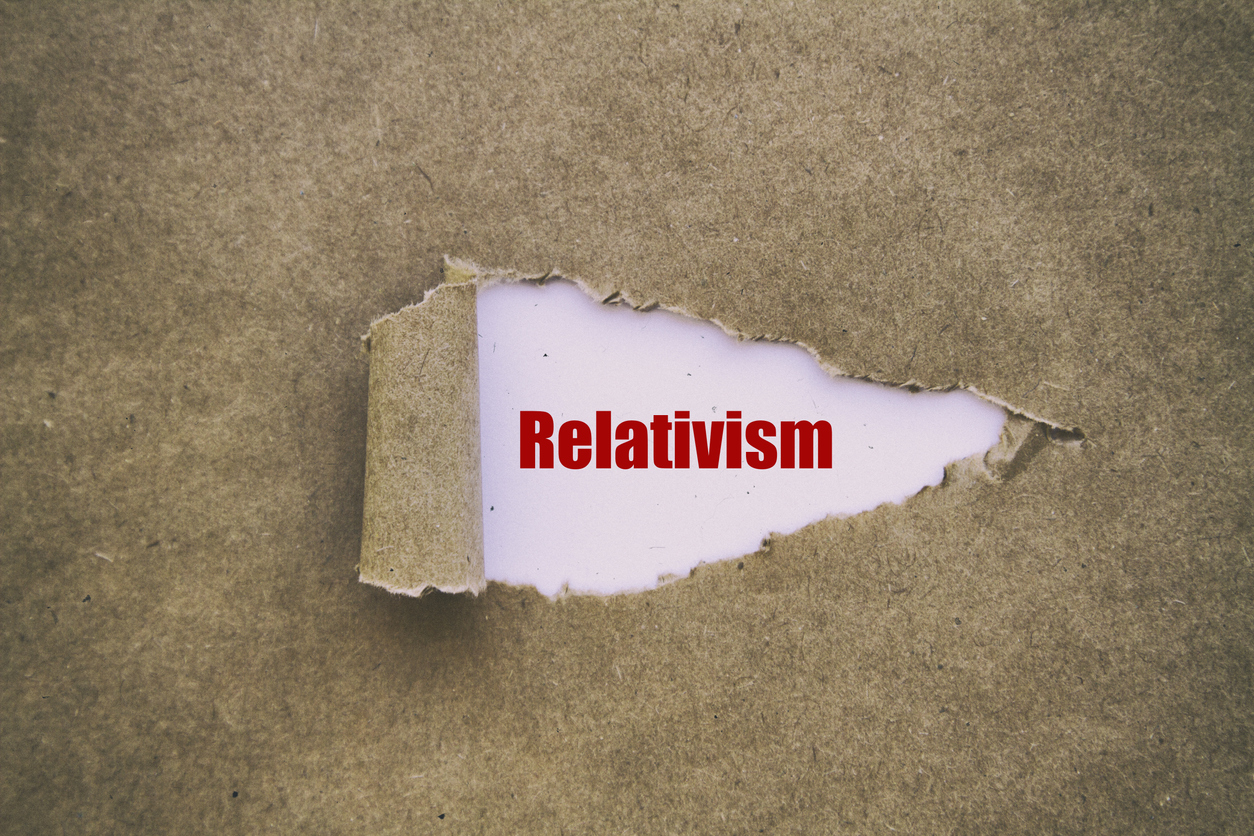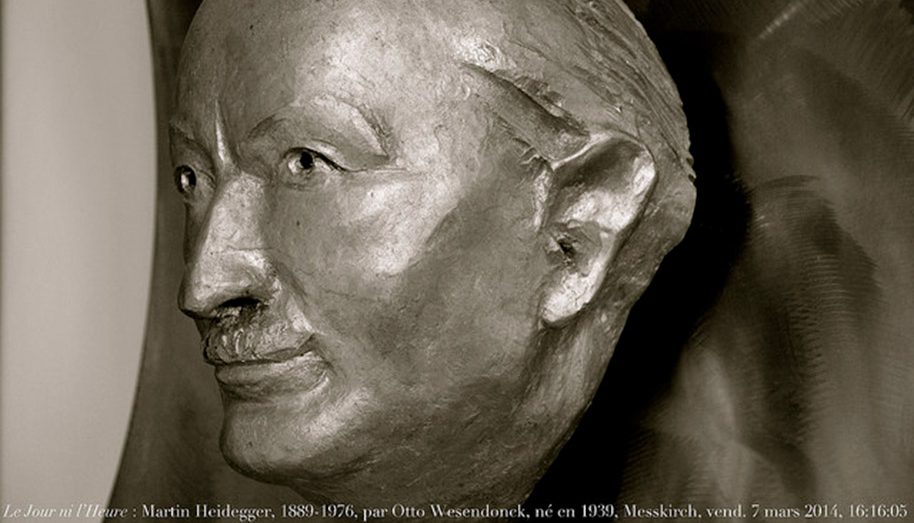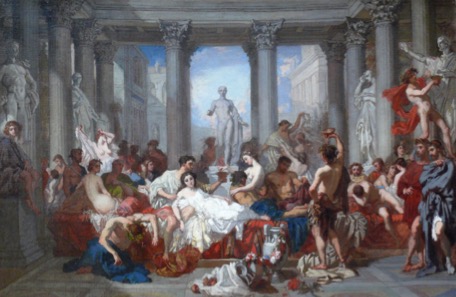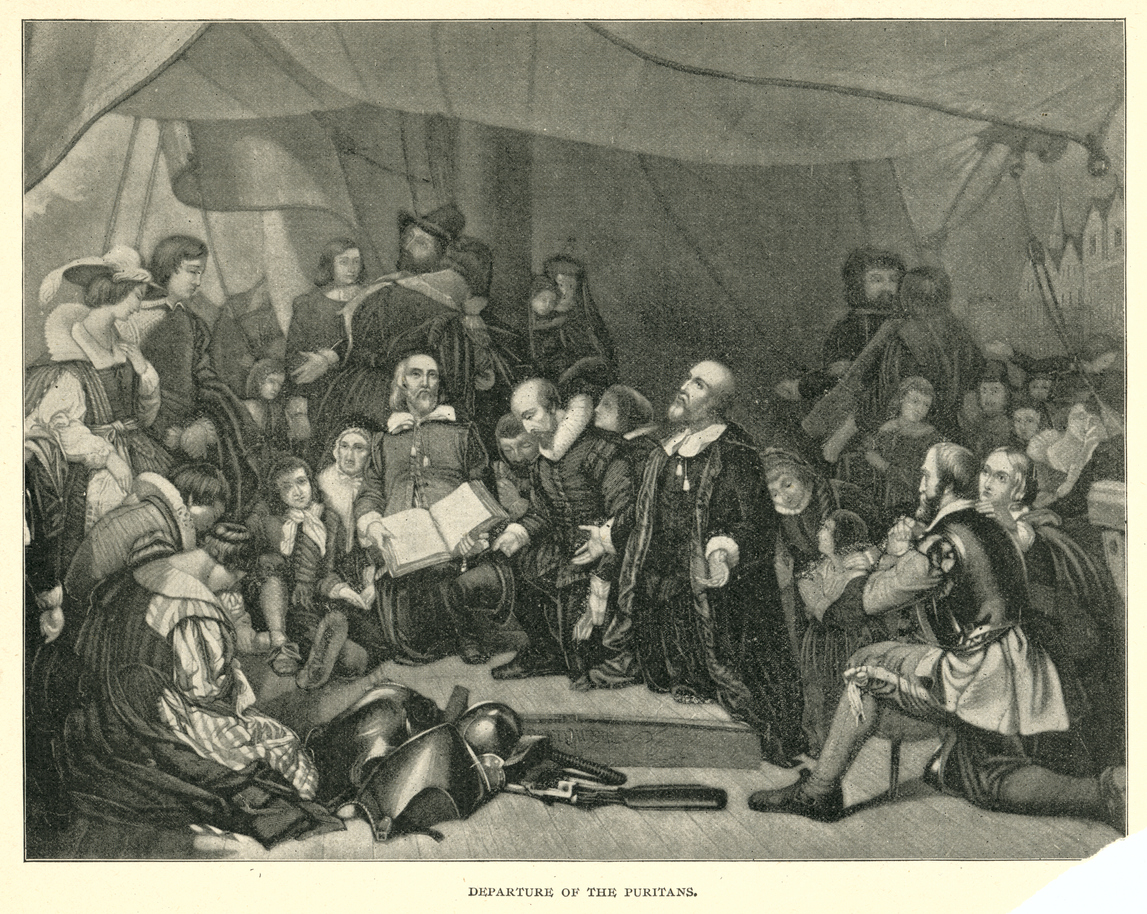Since Jaffa wrote "Reichstag" in 1989, the campus left has adorned its ideology with a few new terms—but its underlying relativism remains the same.
Diagnosing Academia’s Disease

What's the Root of Academic Rot?
This week we feature commentary on what, exactly, the underlying problem of higher education is today. Over the last century, American higher education has achieved much in terms of technical accomplishment but increasingly ignored and ultimately rejected the very aspects of the education of the founders that made the founders, and hence, America, great to begin with.
We recently made Harry Jaffa’s prophetic valedictory address to higher education entitled the “The Reichstag is Still Burning” available as a PDF, and published a variety of contemporary commentary beside it. Jaffa’s claim, in part, is that the decay of higher education in contemporary America is related to relativism:
“There is one thesis that is dominant in the liberal arts curricula today—one that runs through all the social science and humanities department, e.g., political science, economics, literature, religion philosophy, history, psychology, sociology, and anthropology. That thesis is that there is no objective knowledge of, or rational ground for distinguishing good and bad, right and wrong, just and unjust. All such judgements are said to be value judgements, concerning which reason has nothing to say. The essence of a liberal education consists—at least at first—in becoming a dilettante of the aesthetic ideals expressed in art, architecture, sculpture, music, and literature, and learning to savor the variety of lifestyles expressed in books, religions, philosophies, and cultures. What education displays for us is the the variety of forms that human imagination and human taste—including moral taste—takes, but it never tells us that one is truer, more beautiful, or more just than another. It never tells us that human choice can be guided—as the Signers of the Declaration of Independence believed it could be—by the truth about man, God, and the universe.”
Heather Mac Donald, of City Journal and the Manhattan Institute, disagrees in a direct and honest manner that is likely representative of how many thinkers on the Right today might quietly object:
“This analysis is unpersuasive.
Watching students attack statues of Confederate soldiers or vandalize buildings they associate with America’s racist past, it is hard to see relativism and non-judgmentalism at work. In fact, today’s students and the left-wing professors responsible for their victim ideology are shrilly judgmental. They ruthlessly enforce a moral hierarchy of victimhood based on what they know to be the truth: that America is endemically racist and sexist. They are violently intolerant of views that challenge that truth.”
Mac Donald, author of The Diversity Delusion: How Race and Gender Pandering Corrupt the University and Undermine Our Culture, says that “The core sickness of the academy is not relativism but hatred.” Further, no doubt like many others intellectuals on the right, she suggests that natural right, natural law, and trans-cultural or trans-historical truth are all dubious given human history and disagreement, and not the kind of notions or language needed “to restore the academy to its proper mission.”
Given that education shapes our understanding of who we think we are and who we ought to become as a people, restoring the academy and its proper mission is necessary if we wish to restore American to civic health. Her remarks thus inspired us to ask a variety of minds to express their own thoughts on the question, to be published over the course of the week.
David Corbin, Vice President for Academic Affairs at Providence Christian College, points out that Jaffa and Allan Bloom both thought the abandonment of natural right is the cause of the ills of the modern academy—but Jaffa argued that Bloom did not have a cure for the disease. Sam Goldman, Executive Director of the Loeb Institute for Religious Freedom at George Washington University, disagrees, arguing that both Jaffa and Bloom were wrong about relativism, which was a temporary stance of convenience for administrators en route to the establishment of a new religion on campus, replete with its version of beliefs and sanctifying practices. Joe Zepeda, Director of the Integral Program at St. Mary’s College, argues that while relativism may have been convenient for a time, the underlying problem is the disorder caused by a lack of a common understanding of the human beings and the good, which causes administrators to wallow in politicized fads and ignore the true purpose of education.
Larry Arnn, President of Hillsdale College and Vice-Chairman of the Claremont Institute Board of Directors, responds to Heather Mac Donald, defending the notion of truth and natural law, and explains how disagreement over natural law does not disprove its existence. Jeff Polet, a Professor at Hope College and Board member of the Russell Kirk Center and Front Porch Republic, suggests that while Mac Donald is correct about much, Beauty without Truth cannot save us. Glenn Ellmers, speechwriter and former Claremont Institute Director of Research, takes issue with Goldman, responding that Jaffa was right about relativism, and supplying us with a rich diagnosis and solution that might help us recover a unified understanding of reason and human nature.
We urge readers to pre-order The Rediscovery of America: Essays by Harry V. Jaffa on the New Birth of Politics (Rowman & Littlefield, 2019), from which we excerpted Jaffa’s illuminating statement in 1989 on violence, political correctness, identity politics, and multiculturalism on campus.
The American Mind presents a range of perspectives. Views are writers’ own and do not necessarily represent those of The Claremont Institute.
The American Mind is a publication of the Claremont Institute, a non-profit 501(c)(3) organization, dedicated to restoring the principles of the American Founding to their rightful, preeminent authority in our national life. Interested in supporting our work? Gifts to the Claremont Institute are tax-deductible.
We may never find a grand, unified theory of the “single truth," but we do not need it to know that men are not horses and beauty is truly good.
Without a common understanding of the human person and the human good, academia is reduced to job training, politics, or consumerism.
Both the burning of the Reichstag and the decline of the American university resulted from the choices of philosophers. Jaffa’s final address is a condensed version of the book Allan Bloom should have written, but couldn’t.
Absent the teaching of human truth, absolutism preys on our atomized youth.
"Relativism," contra Jaffa (and Bloom), was merely administrative compromise. But the academy no longer believes all sin is relative...






